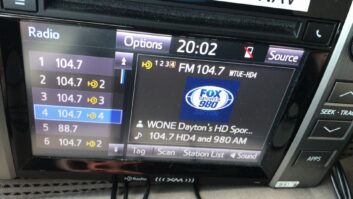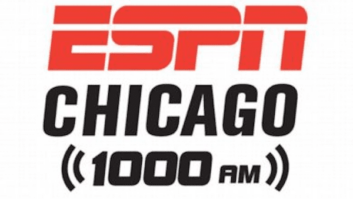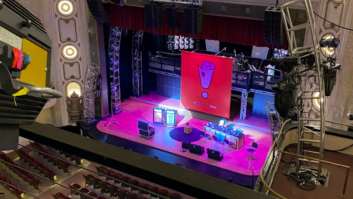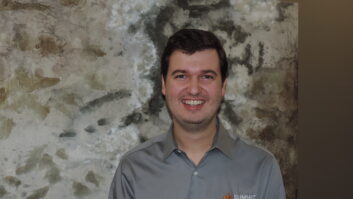The Radio Board of the National Association of Broadcasters elected Randy Gravley as its chair in June. He is president and CEO of Tri-State Communications Inc., based in Jasper, Ga. His companies own and operate several radio stations in North Georgia.

Randy D. Gravley
He spoke to Radio World Editor in Chief Paul McLane about issues of concern as the U.S. radio broadcast industry heads into the fall Radio Show in September.
Radio World: What do you consider the most pressing business challenge facing U.S. radio broadcasters right now?
RandyGravley: We’ve got several areas where I think our industry’s being challenged. One is the rise in the streaming services and other media platforms competing against us. To make sure that we stay technologically relevant is a very important area for not just large but small broadcasters, to make sure that we are addressing these issues.
We know that we need to be on as many platforms as possible, but we also need to make sure that we’re giving listeners something that they can’t get anywhere else, where they can’t find it on streaming.
It goes back to a real dedication to localism. We can’t just be a jukebox in the sky. We have to give both our listeners and our consumers the localism.
Yeah, radio is facing a tough business climate; but we also have a very good story to tell, with a report that just came out from Edison [Research] that shows AM and FM listeners more than 10 times more than Pandora, 20 times more than Spotify.
These are good stories to tell. I don’t think that we always do a good job of telling that. We need to make sure that we work on that and tell that story not only to Wall Street, but to Main Street as well.

Gravley is shown with NAB Joint Board Chair Caroline Beasley.
RW: Commercial radio has found it difficult to move its revenue needle overall, even as its digital revenue continues to grow. Can we ever expect to move that overall needle, back to being $20 billion or more a year industry? How?
Gravley: It’s not going to be easy, but I do think it’s very attainable. We just need to make sure that we practice our rate discipline and get our fair price for our ads.
Study after study shows that radio offers the advertisers the highest return on their investment out of any media platform. That’s not, again, something that we discuss enough.
We also have an opportunity with the controversy surrounding online digital ads to make up some. We’re finally hearing the full story. These ads are being reported, recording fraudulent air play; they’re being placed on inappropriate websites that the advertisers don’t know about.
Most importantly, I think, is that they’re showing that it’s being ignored completely by consumers. Follow that up with a Procter & Gamble ad executive, the nation’s and world’s biggest advertiser, saying that the company’s taking a stand against fraud in their digital advertising. That should be a buoy for our industry.
There’s a huge opportunity for radio broadcasting to step in and fill that need. Radio advertisers know what they’re going to get when they advertise on radio.
RW: We’re hearing a lot about smart speakers in the home. What’s your take on the Alexa movement and what should radio broadcasters be doing?
Gravley: I just got an Alexa for my birthday, last May. These voice-activated speakers are very neat.
I think they’re going to provide radio with a great opportunity that we may regain our prominence in the home again. Paul, you know that the number of radios in U.S. households have been declining year over year. With the growth of smart speakers, radio is finding another platform in which we can reach Americans in their homes. This is a neat and exciting time. We’ll also benefit from these devices because they’re convenient, the easiness of them. Also, it’s not hard to tell your speaker while you’re cooking dinner to play your favorite radio station while you’re being preoccupied.
Radio broadcasters, we’re the only locally based audio service. It gives us an advantage over the streaming services when it comes to devices such as Alexa and others.
To show the importance of Alexa and voice-activated speakers, at the last NAB Show they did an Alexa boot camp. That was to help radio broadcasters and the attendees build their skills not only on the technology side, but also for them to think about how to build compelling content to keep the audiences engaged in that. This is a great opportunity for broadcasters to work with these devices to help grow our listenership.

RW: That’s in the home environment. In the car, what’s your message to broadcasters about how to protect and grow radio’s connected car role?
Gravley: This is a very important issue that the NAB and broadcasters don’t take very lightly. This is something that we’re paying a lot of attention to.
Our competitors would love to supplant radio as America’s top choice in the automobile. NAB has taken the lead in meeting with automakers about the long-term relationship between the car and radio listenership. It’s important that the car manufacturers understand that broadcast radio continues to have an enduring value to their consumers. It would be too easy to just lose sight of that for the new shiny streaming devices and the pretty pictures that they have on the screen.
Edison also just came out with research that said AM/FM radio counts for 70 percent of time spent listening in the car. With that, we need to make sure that we’re delivering compelling, entertaining and local content. That will help us ensure AM/FM radio broadcasting’s place in the dashboard.
I can’t press [enough] upon how important this issue is. At the Radio Show coming up in Austin, an opening session will be focused on this very thing, the connected car and the future of the digital dash.
What we have to do is make sure that we’re delivering good local content that’s compelling and entertaining.

Gravley meets with Pam Carnes, president of the Cherokee County Chamber of Commerce.
RW: Six to eight months into the chairmanship of Ajit Pai, can you give the commission a grade for its work during that time, and explain it?
Gravley: Absolutely. This is my easiest and favorite question that you’re going to be asking.
I would absolutely, without question, give Chairman Pai an A+. At his core, he’s just been a great supporter of local broadcasting, especially radio. He’s made it very clear since he first came to the commission of his support, by championing the AM revitalization.
It’s great to have a supporter of broadcasting with a chairman like Chairman Pai. He spoke about his parents coming to the U.S. with $10 in their pocket and a transistor radio. He gets it. He understands it, and we love him for it.
He’s done a great job too with cracking down on pirate radio, not only the AM revitalization. Also actively seeking to eliminate unnecessary and outdated regulations on broadcasters is really helpful for broadcasters.
I just can’t remember the last time an FCC chairman has been there who has shown such an appreciation for the role of radio broadcasters in the local communities. It’s been heartening to watch. … We’re very, very fortunate to have Chairman Pai as the chairman of the FCC.
RW: Any hints about what he might say at this fall’s show? It seems like a nice time to come up with another big announcement of some kind.
Gravley: You know what? I’m just looking forward to hearing him speak. I’ll be there in Austin, which I know you will be as well. We’ll learn together, how’s that?
WHERE METRO MEETS THE MOUNTAINS
Born in Kennesaw, Ga., Randy D. Gravley, 44, lives north of Atlanta in the community of Woodstock, part of Cherokee County — “where metro meets the mountains.”
He attended Reinhardt College and Kennesaw State University, and originally hoped to be a high school government teacher and track and soccer coach, but radio came along. He began his broadcast career at Cherokee Broadcasting in 1992, working on-air, in sales and as assistant manager. Today he co-owns Tri-State Communications with business partner Byron Dobbs, and serves as president/CEO. Tri-State owns WLJA(FM) and WPGY(AM), both in Ellijay, Ga., as well as an FM translator there that carries WLJA’s HD2 signal. A subsidiary owns WXJO(AM) and its FM translator in Douglasville.
Among other accomplishments, Gravley was the youngest person to become chairman of the board of the Cherokee County Chamber of Commerce in 2004, and the youngest to chair the board of the Georgia Association of Broadcasters the following year.
His community and board work includes involvement with the Georgia Association of Broadcasters, Reinhardt College, Leadership Georgia Program, Chattahoochee Technical College Foundation, United Way of Cherokee County, Cherokee County Citizens Round Table for the County’s Land Use Plan, Cherokee County Sheriff’s Foundation, the county board of elections and its zoning board of appeals.
Randy Gravley was inducted into the Georgia Association of Broadcaster’s Hall of Fame last year. He is an avid tennis player and loves to travel, with a particular attachment to Turks & Caicos.
RW: The commission does seem serious about eliminating the main studio rule. Broadcasters, meanwhile, have always emphasized localism, as you have. How is this rule change serving localism and the public interest? It seems to be going in the other direction.
Gravley: I would disagree a little with that. I think that the rule is outdated. It’s antiquated. It doesn’t serve the purpose today that it was intended for when it was put in place.
You don’t have to have a studio in your city of license to be a great local broadcaster. With today’s technology, there are so many advances that make it easier than ever to serve your local community. A broadcaster just having a staffer on hand 24/7 … it may pay lip service to localism, but it doesn’t equal localism. It’s not necessarily the most effective and efficient way always to do localism.
Just the cost savings from eliminating this rule could allow broadcasters to reinvest those funds for upkeep of a studio, into newsgathering operations, hiring additional staff for news and things of that nature, to organize charity drives, or upgrading facilities to expand coverage.
That’s localism. That’s serving the community. There’s a great number of opportunities there for local broadcasters to take that money they’re going to be saving on this outdated rule and really investing in local broadcasting. That helps the community. That’s local broadcasting at its best. It’s going to allow us to be able to give more local content.
RW: You touched briefly on illegal broadcasts. Even though Chairman Pai and Commissioner O’Rielly have talked a lot about it, the commission actually has fewer resources for enforcement these days. What should it be doing now?
Gravley: I think it’s been clear that the FCC under Chairman Pai has been very aggressive in issuing fines to pirate operators. To be quite honest, I have no complaints about its actions so far. You can grabble about the enforcement office closing, but the FCC is showing that it’s dead serious about this very issue. I think we’re seeing that.
RW: Commissioner O’Rielly has asked Congress to allow the FCC to broaden its enforcement authority in certain ways: seizing equipment and pursuing people who help pirates indirectly, like landlords. Yet it seems unlikely that Congress would do that. Do you think it’s possible that effort will have any traction?
Gravley: Clearly the pirate radio issue is a Whac-a-Mole problem that won’t be solved until the FCC has every tool available at its disposal. I think Commissioner O’Rielly’s proposal warrants serious consideration by Congress. Do I know if they’ll do it or not? I don’t know.
NAB RADIO BOARD CHAIRS
(Some chairs served more than one term, and not always consecutively.)
1950s-’60s
Merrill Linsday
J. Frank Jarman
F.C. Sowell
Thomas Bostic
George C. Hatch
William Schroeder
Ben Strouse
Rex G. Howell
Jack W. Lee
Grover Cobb
Richard Dudley
Dick Chapin
1970s
Andy Ockershausen
Harold Krelstein
Don Thurston
Len Hensell
Walter May
Arnie Lerner
1980s
Edward O. Fritts
Cullie Tarleton
William Stakelin
Marty Beck
Ted Snider
John Dille
Bev Brown
Jerry Lyman
Lowry Mays
William Sanders
1990s
David Hicks
Richard Novik
Wayne Vriesman
Robert L. Fox
Doug Williams
Dick Ferguson
Howard Anderson
Bill McElveen
2000s
David Kennedy
John Dille
Virginia Morris
Carl Gardner
Bruce Reese
David Field
Russ Withers
Steve Newberry
Charles Warfield
2010s
Caroline Beasley
Don Benson
Jose Valle
Randy Gravley
RW: We see more and more emphasis on mobile alerts, wireless emergency alerts via smartphones, which seems like a good thing. But it does seem to undermine the longtime role that broadcasters have built up as first informers. Should radio consider these alerts a kind of threat to that role?
Gravley: I don’t believe wireless alerts undermine local broadcasting’s role during emergencies at all. If you receive one of those wireless alerts, one of the things that it tells you to do is to turn to your local media for more information. Of course, that means local TV and radio.
I don’t think so. Nobody else has the relationships with law enforcement like broadcasters. We serve as the public’s first informers. The law enforcement officers, they serve as the public’s first responders. By working closely with law enforcement officers, we continue to keep our communities and Americans safe. That makes us the best source for the information during emergencies.
I’m sure you’ve heard Gordon Smith say that the future must be a partnership not only between broadcasting, but also broadband. I think emergency alerting is just one area where we see how such a partnership would benefit the public.
RW: There’s been a lot of discussion about FM tuner chips in smartphones. Most broadcasters would like to see more of that, particularly in Apple devices. Chairman Pai supports the concept but firmly has said he doesn’t believe in a mandate for that. Should broadcasters be pushing harder for a mandate of FM chips activated in phones?
Gravley: Look, we’ve made great headway from where we were. We do not support a mandate. There’s been incredible progress made without that through the private business deals negotiated with Sprint and Verizon and T-Mobile and AT&T.
Unfortunately Apple is not one of those. It’s sad to see that Apple still refuses to turn on the radio chip in its devices. Does Tim Cook really want his legacy to be dismal for the potential of lifesaving benefits of radio-enabled mobile devices? It’s unfortunate.
We’ve made great progress on that. Do we have more work to do there? Absolutely, but I’m very pleased with where we are and hope we’ll get eventually every FM tuner chip activated soon.
RW: We’ve seen a lot of evolution in the relationship between broadcasters, performers and record labels, but at times those relationships have been pretty chilly over the royalties issue. We’ve also seen some broadcasters negotiate content rights directly in certain circumstances. Can you characterize the state of relations with performers and record labels?
Gravley: This is an issue that we’ve been talking about for some time. Yes, there is ongoing dialogue between broadcasters and the record industry. However, any deal that happens on the performance royalty would need to absolutely recognize the important role that local broadcasters and local radio plays in publicizing the artist’s music, inspiring album sales and also selling the concert tickets and their merchandise.
We talk a lot about this issue, but what’s funny about it is that once you get outside of D.C., this fight is almost moot. In the real world, the mutually beneficial relationship between radio and musicians is on full display. Constantly, the record artists and their reps are visiting local radio stations and building those relationships with the radio on-air personalities, with the hopes that they’re going to generate the air play for their music.
What I think is a concern for the small broadcaster: We’re really not fooled by the claim that radio royalties would stay at $500 a year. It may be for the first year; but once RIAA gets its nose underneath the proverbial tent, I think that you can expect that they’ll be asking that those fees be raised to something like $5,000 or more the next year.
RW: What do you see as the role of the NAB Radio Board chairman?
Gravley: I’m sure that you’ve heard Gordon say that unity is the key to any effective trade association. I truly believe that my role as Radio Board chair is making sure that we have unity in our industry so that we can win whatever policy fight that faces the NAB and our industry. To make sure that we’re united as one.












